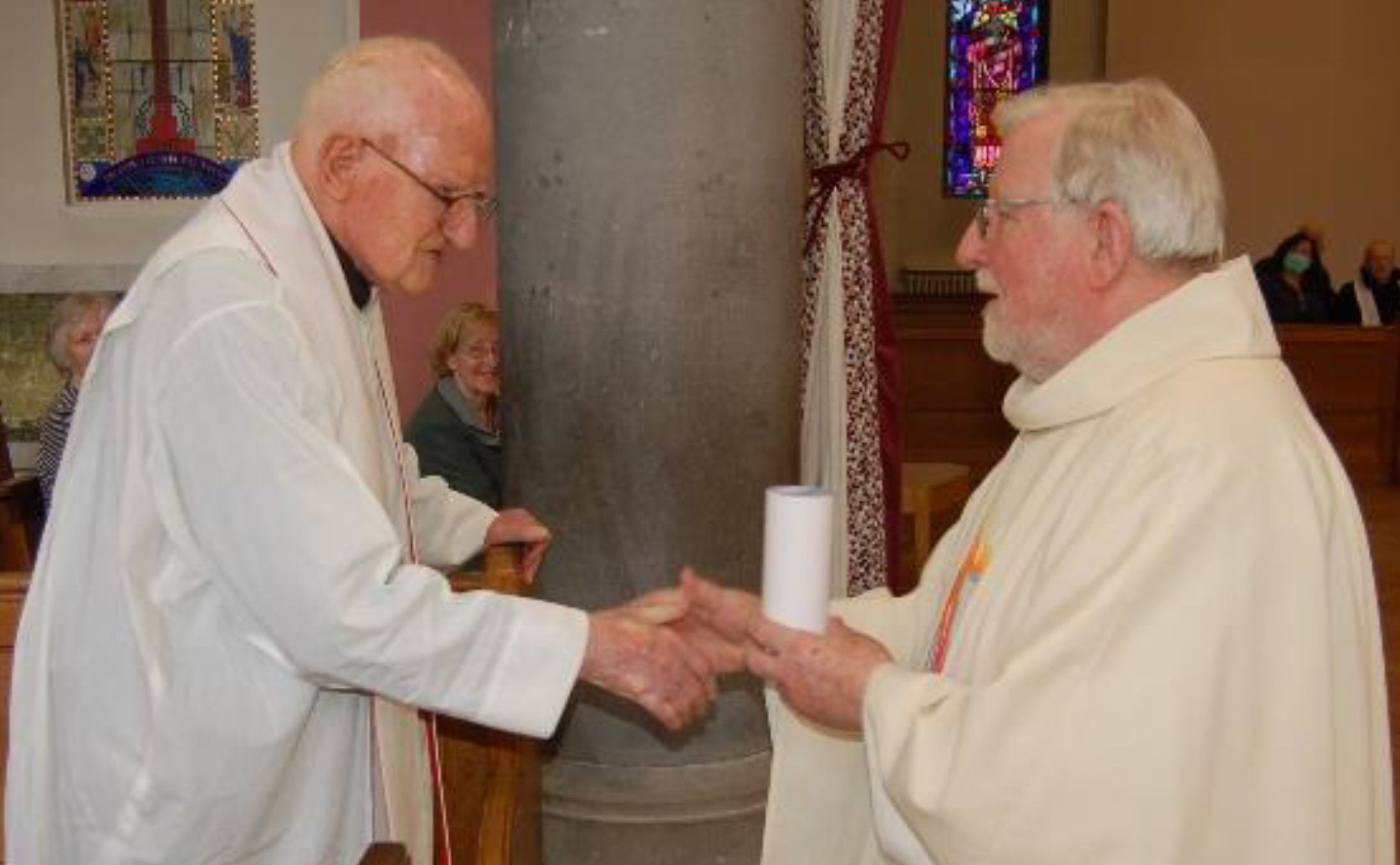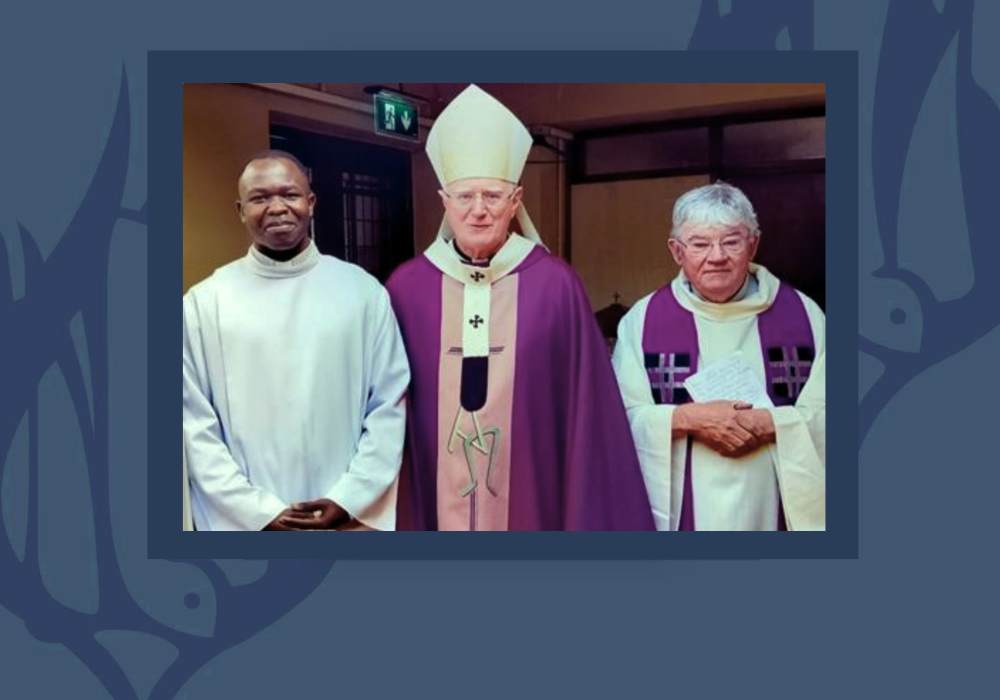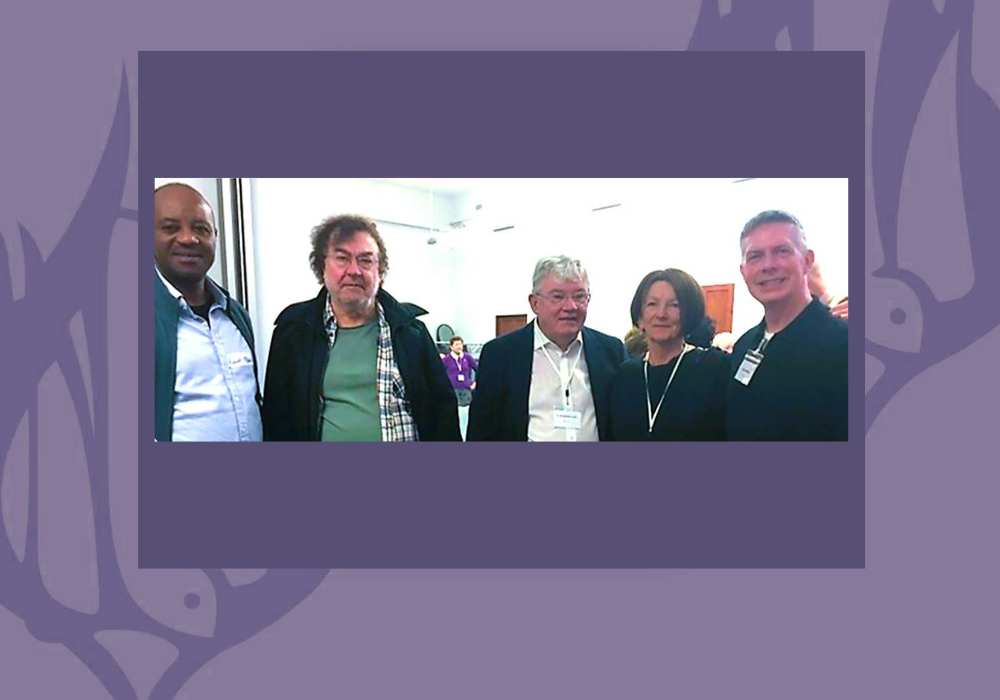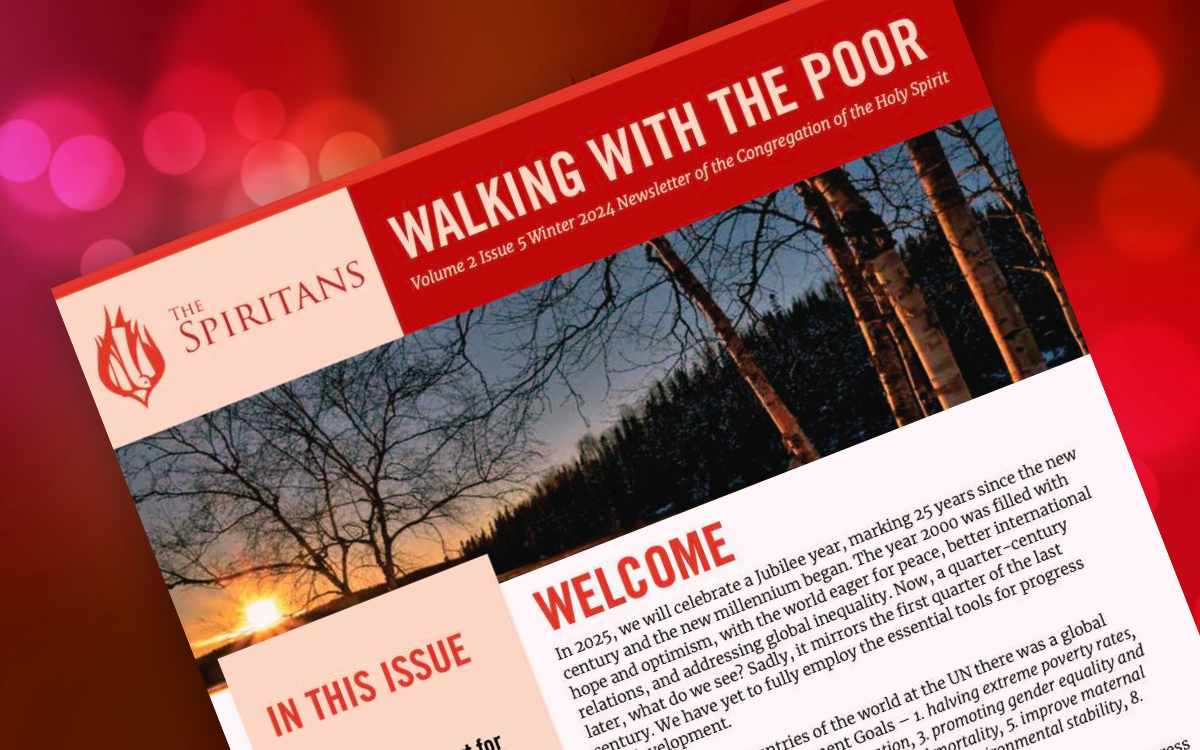Introduction
We often talk about vocation as someone giving his / her life to the service of others. Vocation is about a call and invitation. Jesus called his disciples by inviting them to come and follow him. But this call and invitation is often the result of a questioning about one’s life or a desire to do something worthwhile with it.
If you are at this stage of questioning or feel called to follow Christ as part of the Spiritan family, you may consider talking it over with a Spiritan priest. To this end you are advised to make contact with Fr. Paddy Moran C.S.Sp. Fr. Paddy, who worked for over a decade in the areas of pastoral and prison ministry in Ethiopia. is currently appointed on mission in Ireland where he is Vocations Director and does chaplaincy in different Spiritan schools. Here is a link to an RTÉ Nationwide programme about his work.
To discuss where God might be calling you please contact:
Vocations Director
St. Mary’s College,
Rathmines,
Dublin 6,
D06 CH79
youth@spiritan.ie
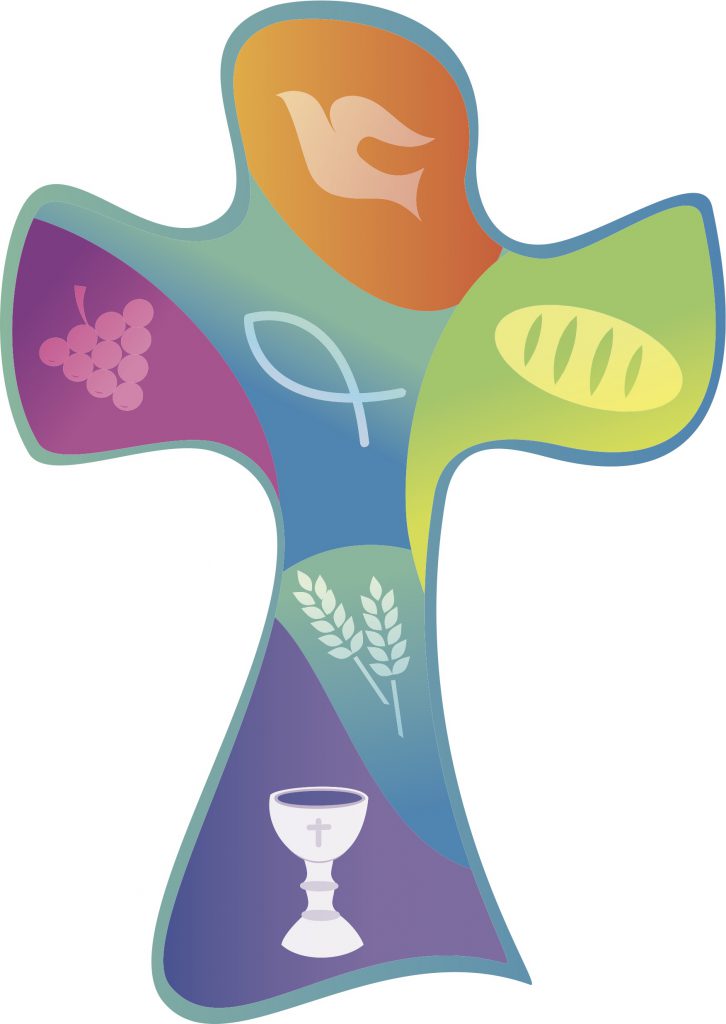
You might then by agreement meet up with another Spiritan appointed to engage with you in a more formal process of discernment. Discernment is the term given to the process of serious reflection about life choices. This normally lasts a period of time necessary to see how God is working in your life and how He might be calling you to a life of discipleship as a Spiritan missionary. Normally at this stage, you would spend some time in a Spiritan community to get to know us better.
At the end of this time of discernment, if you feel called to pursue the idea of becoming a Spiritan, you can apply to join the Formation Programme. A series of interviews with the candidate and, at some stage, a psychological assessment would follow.
Becoming a Spiritan – the process involved
The Formation Programme
As each candidate for formation is unique, the Formation Programme adapts itself, where necessary, to the individual needs of each candidate. But there are some common elements:
- Living in Spiritan community. Candidates begin their formation by studying Philosophy for two years. Voluntary work should be part of that two-year experience. If a candidate has already studied Philosophy, then it might be possible to pursue a course of studies in Theology and Pastoral Ministry.
- There will be a period that we call the novitiate. This is twelve months of spiritual preparation where the candidate is introduced to the life and prayer of the Congregation. It is an intense spiritual experience under the guidance of an experienced Spiritan priest. This one-year phase is done in an international setting outside Ireland. At the end of the novitiate, if the candidate wishes and the Congregation accepts, he may make his first formal commitment to the Spiritan family by the profession, for three years, of the vows of poverty, chastity and obedience.
- We are a missionary congregation and so we would expect our candidates to live a prolonged experience of transcultural mission in one of our communities in Africa, South America or Asia. This ‘Pastoral Experience Programme’ (PEP) normally lasts two years. The candidate receives training in preparation and on his return will be engaged in serious reflection on this first missionary experience.
- The formation programme ends with training in theology and pastoral ministry – normally at university level. At the end of the formation programme the candidate, if he so desires and with the approval of the Congregation, may commit himself for life to being a Spiritan Missionary. During formation, the candidate will be living the Spiritan life of prayer, mission and study; he would be expected to learn another language used in the Congregation (French, or Portuguese) and would live the common life with brothers. This common life is the lived expression of the religious vows which are at the heart of our community life. These vows are first taken after the novitiate and are taken for life at the end of the formation process.

The Vows of Poverty, Chastity and Obedience
Contrary to what one might think, these vows allow us to live freer lives. In poverty we give up the search for material gain to live like Christ at the service of others. We live our chastity in the single state as a God-given gift that enables us to be available for whatever the Holy Spirit would have us do to serve the Kingdom. (Spiritan Rule of Life N° 60). Through obedience we engage ourselves in a prayerful dialogue of how we can best serve the mission of the Gospel so that we can use our gifts and talents to contribute to building up the Kingdom of God.
How Spiritans live and the focus of their ministry
We seek to live close to the people with whom we work. Our communities are often small. More and more we are taking up the challenge of international living. In a world which can be marked by prejudice, suspicion and greed, we seek to live a common life of prayer and service. It is not always easy to overcome differences of culture and language but we believe that this is what Christ calls us to live.
Youth Ministries
Schools and Education
Why the Spiritans are involved in education
The Spiritans in Ireland have a long association with education in Ireland. We are extraordinarily proud to be involved in the holistic development of over 5,000 students every day.
“My vision for the future is that our past students will be a Christian leaven in whatever society they find themselves. And they will be in solidarity, proactively, with the marginalized of society. They will not be afraid to champion the message of Christ wherever God calls them to serve. This could be in the corridors of government or in shanty towns; in relatively peaceful Ireland or war torn countries; in healthy climes or in diseased and pernicious famine areas; in stable regimes or in areas of huge population unrest and migration; among “successful” business people or among the rejected and ignored poor of the modern world. They will found schools, teacher training colleges and universities where the deprived poor will be welcome.
They will open clinics, introduce food growing for the hungry water holes for the thirsty, and clothing for those who have none. They will serve as lay or clerical chaplains in prisons, bringing forgiveness and consolation to the disregarded of society. Some will be imprisoned or even killed; some will die in accidents or from tropical diseases. The many cemeteries throughout the world contains hundreds of graves of our past students who died fighting for the message of Christ, particularly among the “forsaken”, bearing witness to their dedication to the vision of our founders and our traditions. The past students of our colleges today and in coming generations, we hope and believe, will follow in their footsteps. Go Ye Afar, to serve all nations, bear witness unto Me. And they will.”
Fr. Cormac O’Brolchain C.S.Sp.

